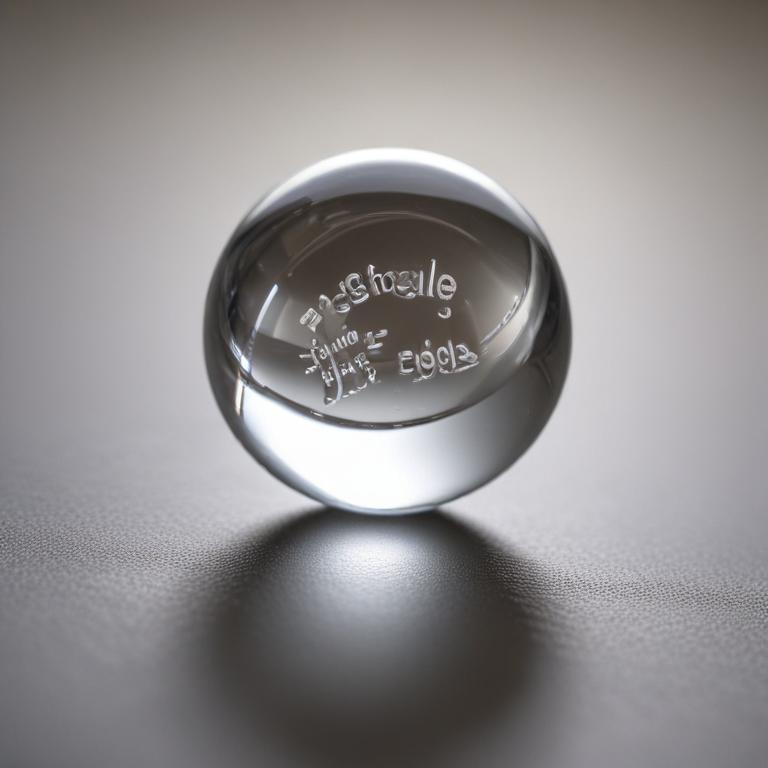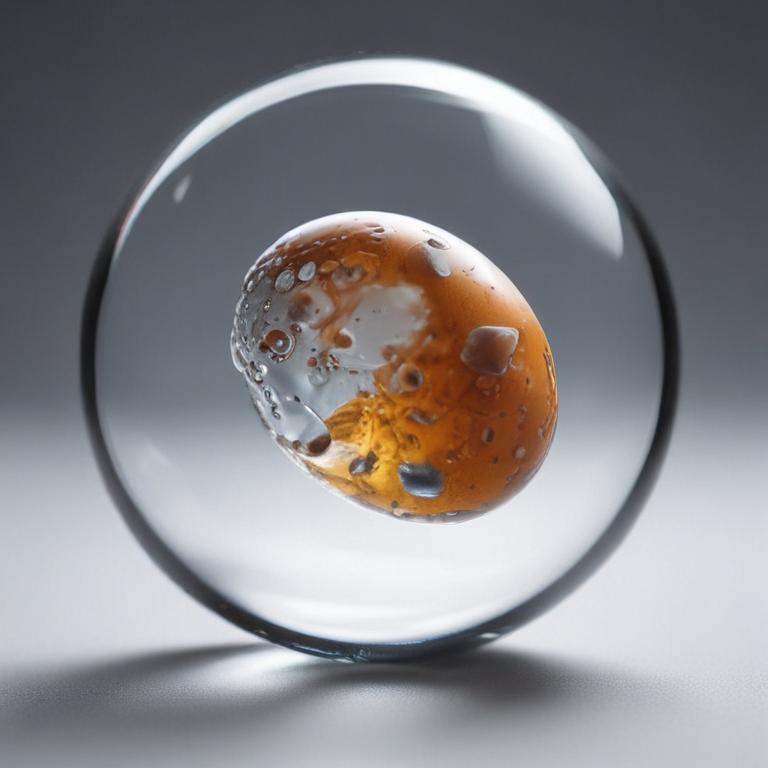发音 (Pronunciation):
IPA: /ˈmɑː.lɪ.kjuːl/
中文近似: 莫利丘(儿)
中文意思与词性 (Meanings & Part of Speech):
- 分子(化学中最小的能独立存在的物质单位) (n.)
- 微小的部分或量 (n.)
例句 (Examples):
1. A water molecule consists of two hydrogen atoms and one oxygen atom.
(一个水分子由两个氢原子和一个氧原子组成。)
2. There wasn't a molecule of truth in his story.
(他的故事里没有一丝真实的成分。)
用法提示 (Usage Tip):
“molecule”通常指化学中的分子,注意不要与“atom”(原子)混淆。表示‘一点点’的意思多用于否定句或比喻用法。
更多关于 "molecule" (More about "molecule")
单词来源 (Etymology)
“molecule”来自法语“molécule”,源自拉丁语“moles”,意为‘质量’或‘小块’,原本指极小的物质单位。
词根词缀解析 (Root & Affix Analysis)
词根“mole-”来源于拉丁语,意为‘质量’、‘小块’,后缀“-cule”是指‘小的’。因此,“molecule”直译为‘小质量的东西’或‘小块’。
“molecule”的字母与词根个性化解读
字母象形/引申义 (个性化参考)
- 字母 'm' 的象形或引申含义可能包括: 山 (象形) -> 高大, 连接; 手 (男人劳动); 命令; 凸起 (嘴); 思维; 水面波纹; 音变: M=N=L=R; M=B=P=F=V。
- 字母 'o' 的象形或引申含义可能包括: 眼睛/嘴 (圆形) -> 张开, 转动; 圆柱; 音变: A=E=I=O=U=W=Y。
- 字母 'l' 的象形或引申含义可能包括: 拉长, 长 (line); 舌头 -> 说 (language); 细, 少; 音变: L=M=N=R。
- 字母 'e' 的象形或引申含义可能包括: 眼睛 (窗户符号引申); 向外 (ex-变体); 元音互换: A=E=I=O=U=W=Y。
- 字母 'c' 的象形或引申含义可能包括: 骆驼头 (象形) -> 运输 (car); 抓 (手型); 砍 (弯刀); 包围 (形状); 合并; 叫喊 (嘴型); 走/动; 音变: C=G=K=S。
- 字母 'u' 的象形或引申含义可能包括: 中空 -> 容器 -> 用具 -> 使用; 音变: U=V=W; U=A=E=I=O=Y。
词根/组合解读 (个性化参考)
- 单词中的片段 'ol' (源自词根/组合 'ol') — 含义: 生长, 成长 (al变形); 词根; (来源提示: ol = al 变形); (音变参考: a=o).
学习提示:以上针对单词 molecule 的字母和词根解读,主要基于提供的特定象形及词根资料。这些提示旨在启发联想,而非绝对定论。更通用的记忆规则和原则请参考首页。英语词源复杂多变,实际应用中请结合更全面的词源词典和语言学知识进行深入学习。
常用词组 (Common Phrases)
- molecule structure: 分子结构
- molecule model: 分子模型
其他语言 (Other Languages)
- 德语: Molekül
- 法语: molécule
字母整体创意联想
“molecule”这个单词较细长,中间的“lecu”像分子的连接结构,两端的“mo”和“le”像分子的两个端点,整个形状仿佛连接的原子。
逐字母创意解读
中文谐音助记
“molecule” 谐音“莫理Q”,可以想象‘分子结构很“莫理Q”(魔力Q)’,有神奇的结构。
相关电影/名言
"Your body is made up of trillions of molecules."
(你的身体是由数万亿个分子组成的。)
- 《地球脉动》(Planet Earth, 2006)
趣味知识/故事
分子的概念在19世纪时才被科学界广泛接受。著名的化学家阿伏伽德罗提出分子的假说,后来人们通过实验发现气体的体积与分子数有关,从而为化学反应和现代科学打下基础。
拓展信息
分子是由两个或两个以上的原子通过化学键结合形成的。例如,水分子(H₂O)由两个氢原子和一个氧原子构成。
“molecule”可用于比喻,指非常微小的部分。
在生物、化学和物理等学科中,“molecule”是一个基础且常用的术语。
网络参考 (More about "molecule" from the Web)
Molecule - Wikipedia
A molecule is a group of two or more atoms held together by chemical bonds. Learn about the origin and evolution of the concept of molecules, from ancient philosophers to modern scientists, and see images of different types of molecules.
Molecule | Definition, Examples, Structures, & Facts | Britannica
A molecule is a group of two or more atoms that form the smallest identifiable unit of a pure substance. Learn about the characteristics, types, and bonding of molecules, and see examples of common molecules and their functions.
What Is a Molecule? Definition and Examples - Science Notes and Projects
A molecule is an electrically neutral group of atoms held together by chemical bonds. Learn the difference between a molecule and a compound, an ion, and an alloy, and see examples of molecules of different types.
更多图片 (molecule More Images)

